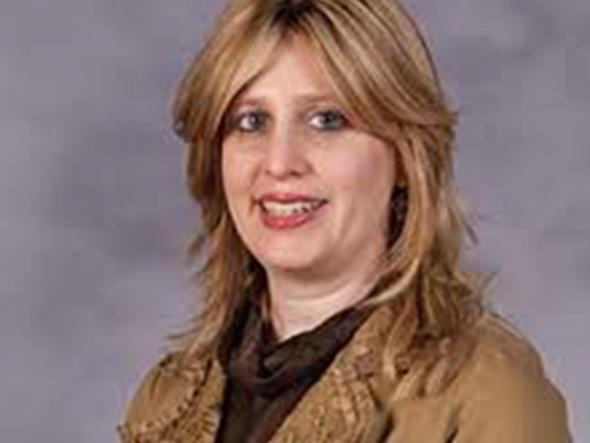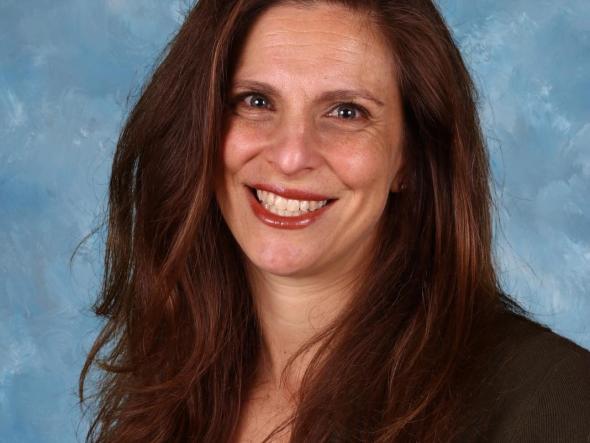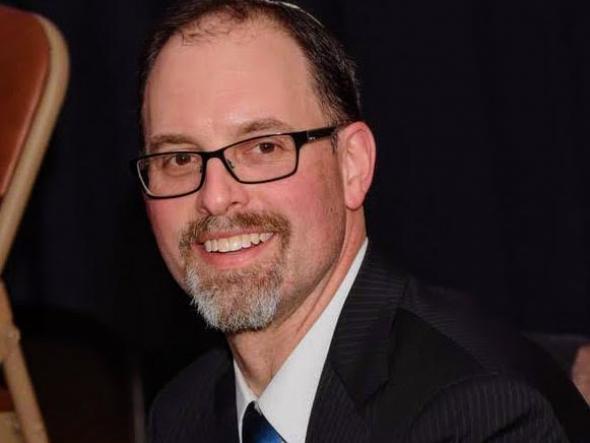“Not What I Had in Mind": Our Teachers’ Journey During the “Flood”
So I am supposed to teach the students in front of me, in my physical room, for six hours in my mask and behind a screen, and also, concurrently, on Zoom, and also the ones in other time zones and also make an asynchronous assignment that differentiates while upgrading my bitmoji page to reflect happy, smiling, not-stressed-out-at-all teachers. And also still take care of myself and my family—make arrangements for my own school-age children—and stay healthy and safe. Oh, wait, and also catch students up on what they missed in the spring, while I am at it. And also—you know, just in case, prepare to go fully remote if needed, just to be sure. And for gosh sake—remember to take care of myself!
No problem. I got this, right?
Truth be told, we are hearing that overall the kids are doing great. For the most part, they are following new Covid guidelines and are getting with the program. The problem is us adults. This is so much harder and complicated and emotional than any of us ever thought it would be. This is not “just like” last year, this is a whole new animal. A totally new prep, even if I taught this subject and this grade a million times before. And there is loss. Loss of what was and the ease of the habits and rituals that made our jobs manageable.
I have only one way of understanding this. In the story of Noah, when the flood is over, the Torah describes Noah in a very lonely way. “Vayisha’er ach Noach”—loosely translated, it means that Noach remained alone, or more accurately, he remained less. The Midrash says that when feeding the lion, Noach was running late (you can only imagine how difficult it was feeding and caring for all the animals) and the lion took a bite out of him, so he was a bit less, meaning, he lost a piece of himself, literally, while caring for the world afloat in the ark.
This image reflects the toll that comes from caring for others for so long, and really highlights the loneliness of it all. Yes, Noah had help from his family, he was not truly alone, but this was unfamiliar work, done in fearful times, and alone in so many ways nevertheless. He ends this period with less of himself somehow, a bite was taken, and he is missing some of what made him whole.
I think of the caretakers, especially now, those brave people who have been leading and nurturing us during the past nine months. They must feel loneliness unlike others do. They must feel the loss in a profoundly different way. Among these brave souls are our teachers. How can they not be impacted by all this loss? And how can we not acknowledge their devotion to our children in sustaining and loving and teaching them throughout this time, even as they, too, have suffered?
The image works, especially, because of the change of setting. Noah was expected to feed and care for the animals and people in his charge, but the setting was all wacky and strange. Imagine how weird it was once the rain stopped and they were waiting for the land to dry enough so we could get out again? It certainly feels a lot like the aftereffects of the flood today, when we expect our teachers to keep teaching and we keep piling on expectations and needs, without removing responsibilities. We are all suffering from the ach, the lack. And as teachers keep hearing “Can you just...” and “Just do this…,” we just need to admit the truth: This is hard. So hard. And the teachers are missing a piece.
So where is the hope?
The great thing about the Jewish calendar is that it’s always right on time with the answer. The holiday of Sukkot has a weird commandment: we are told to be happy in a strange way. “Ve-samachta bechagekha, ve-hayita ach sameach”: we are told to be happy even though we are ach, lacking or missing. The Torah acknowledges that life is so complicated, and we can hold two very opposite feelings at the same time. Yes, we are less, we are wounded and there has been a price to pay to have been a leader at this time, whether a leader of an entire school or a leader of a small class, but the hope is that we can leverage that loss into joy. The Torah advises us not to sweep that pain under the rug, but instead to bring it with us, to dance with it, rejoice with it and to embrace it, because that is part and parcel of our story.
So where do we go from here? How do we support our teachers in the impossible? The secret is to create pockets of simchah, joy, while holding on to the ach, loss.
Here are 5 tips.
- Acknowledge the paradigm shift.
This is not your regular class. This is similar and familiar but very much not the same. When we admit that it is new, we make it socially acceptable to ask for help, to be open to learning and to grow. By making sure that the school community knows that the core of who we are is the same, our values and care, but that the ways we deliver education and care will be different, we manage expectations and support our teachers in giving themselves space to learn and grow. - Get clear on what matters in your school and community, make it a value and then follow up.
When schools chose schedules for the fall, they had to first get really clear on the values of the school. Everything comes from there. When the values are clear and articulated, then decisions make more sense and are more easily accepted. Even when I do not agree with a decision, I can at least understand the why behind it. Making sure that decisions are based on values and being transparent about them, however that plays out, is key to feeling comfortable in a new reality. - Model the care you want. Create multiple access points for support.
Just as we do not all like the same foods and gifts, we need different kinds of support. One size does not fit all. While many teachers mourn the loss of the teachers room hangout and crave that social connection and support, others miss the private one-on-one check-in or call. Parents, administrators, board members and even students: check in on your teachers. show us that you care about us. It need not be a gift (though that is fun) or a thank-you note (also a treasure) or a video montage (amazing!) but something, every so often goes farther than you can imagine. - Get curious. Ask.
Just like Moshe Rabeinu wondered at the burning bush, the sign of a great leader is curiosity. Ask and wonder! Ask your teachers what they need and what they want. And here is the catch: listen. Listen well, and listen till they finish talking and then sit a bit. Hear them. - Use precise language. Call things what they are. Not what they are not.
Shout out to Jenny Horowitz at SAR for this brilliant insight: call things what they are and be precise. If recess looks exactly the same as it used to, then please call it recess. I know what that looks like and I know what to expect. But if it looks different, then find a new word to indicate that so we all know to change our expectations. If there are different rules for mask wearing for different activities, then help your students and teachers wrap their heads around that by being very clear about what things are and what they are not.
There are many wise people out there with great tips and lists just like this. The most important thing is to support our teachers now. And it is up to all of us, the administrators, the parents, the board members, the students and yes, teachers themselves supporting each other. Because they have been our Noah for so long, they have got to feel the ach, and we must make sure they are not alone or ignored. We must be with them and hold their hands as they helped us, and rejoice with them, like the Torah says, to be happy even though—ach.
______________________________________________
Tips from two school counselors:
A Lower School counselor says:
- First I tell myself there is only so much I can do, because this particular dynamic was overwhelming me.
- I validate, empathize and praise them for what is going well.
- I encourage them to communicate these concerns directly, sometimes going as far as to help them write an email or choose language I know a certain administrator can hear best.
- If they are uncomfortable managing up, I ask what they are comfortable with me communicating up.
- We talk about how it makes them feel to have resentment, fear or frustration about this, and what is something they wish they could do instead. Surprisingly, this has been helpful for a few teachers. A few teachers have chosen to keep a micro-success journal; a few have identified a statement to tell themselves. Some have chosen to work on reframing, and others have chosen to identify one person to vent to and say all the negative things they are thinking.
- I teach them grounding skills to use in the moment. They love this too.
- I ask each teacher to identify how they feel most appreciated. I tell them about the five love languages; most of them identify gifts and words of affirmation. I then try to bring them a gift and write a letter about what I appreciate them doing.
A High School counselor says:
Some of the things I’ve been doing with teachers are:
- Individual check-ins with teachers, giving them opportunities to share their own COVID-19 experience
- Virtual teacher room where they can come in and hang out, I then put them in breakout rooms for small group discussion (I encourage bringing tea/coffee and a cookie)
- Psychoeducation about anxiety and stress management
- Psychoeducation about maintaining work/life synergy during these times
- Two minutes with Faculty support: I send a two minute audio clip on resilience skills such as finding happiness, good sleep habits, how to combat mental fatigue and gratitude.
Resources:
Articles to help teachers with concurrent teaching
- 4 tips for optimizing-concurrent-classrooms
- How Do I Teach Online and In Person at the Same Time? Your Questions, Answered
- Concurrent-classroom-blended-learning-models
- Teaching online and face to face at the same
- Stress management for educators
- Why teachers and principals quit now
By Rachel Levitt Klein Dratch, Director of Educational Innovation at Prizmah: Center for Jewish Day Schools






